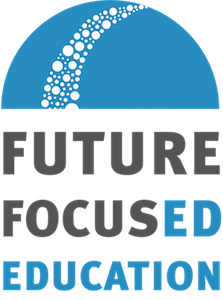Finding My Voice: Traditional Education Didn't Help Me in Knowing Who I Was
By Chrstina Rodriguez, Generation Justice | August 10, 2017
When I first interviewed for my Fellowship with Generation Justice, Roberta, the founder of the project, looked me in the eyes and asked me “Who are you?”
I listed off a few of my favorite jobs, achievements, and passions. She asked again, “but... who are you?”
I realized that my successful academic career had not prepared for this. I had never applied critical thought to this question of my identity, my culture, and my history. I was not armed with the privilege of a confident introduction. I did not know who I was - I did not even know why I felt so strongly about being a multimedia storyteller. This is what I expected from a career in media: finding my voice.
There are so many terrors and anxieties embedded into the academic experience, and the traditional system is often dehumanizing. I know that I, and many of the young people that I work with, have difficulties with self-love while the education system is literally testing all aspects of our character. In New Mexico, there’s so much to fall in love with, it can be hard to focus on a sheet of paper or a computer screen. We are sometimes too hungry, without the space to reflect.
I loved that over the past few years, I have gotten comfortable being uncomfortable. I learned how to make a microphone feel familiar, and when I had it in my hands, I felt relief. I learned the highs and lows of my voice. I have learned when to admit that I do not know something. I have learned how to ask questions. These are things that the mainstream education structures fail to teach. School should not be focused on becoming “someone” beyond who you are, but should focus on you becoming the person that you already know, inside. It should build identity and power.
I’ve always had a love of stories about transformation: sci-fi realities that help me to illustrate a better future in my mind. Narrative shifting is transformative work, requiring internal revolutions to create bigger, shared revolutions.
In New Mexico, it is so important that youth are given a voice. Young people are calling out injustices everyday. Young people are using the internet to revolutionize information and curate their brilliance. Young Nuevo Mexicanos are making it work on their own time: organizing, freelancing, and networking.
I’ve decided to stay in New Mexico for college because I wanted to finally take the time to get rooted in my community, and to truly examine my role under these vibrant skies.
All the tears and all-nighters as both an Albuquerque Public Schools student and a University of New Mexico student have taught me that it is so crucial that our education systems support all the dreams of our youth. Our schools must teach resilience and be places of both freedom and security. This struggle, this emotional bond, pulls me towards making a difference for New Mexican students. Working in radio at Generation Justice has taught me that despite the nerves, deadlines, and standards: our young people already have their voices, and they’re just waiting for you to listen.


